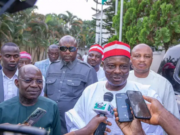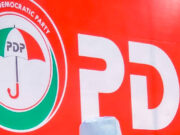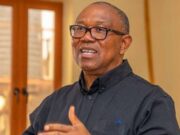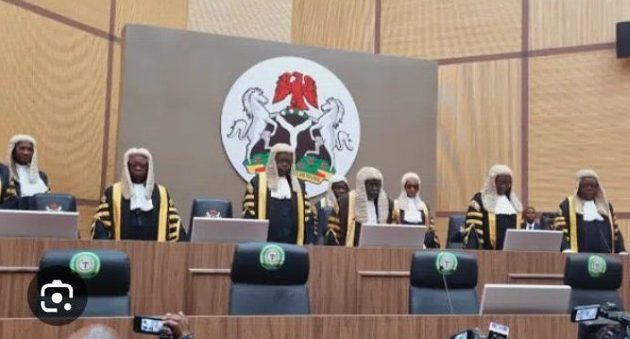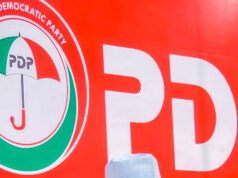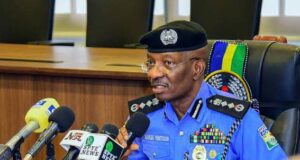Daily Gazette correspondent who is currently in Supreme Court reports that there is tight security in and out of the apex court.
As at the time of filling this report, lawyers, stakeholders of the concerned political parties are making entry into the venue as the legal battle over who won the February 25 presidential election will be over today.
 Advertorial
Advertorial
The candidates of the Peoples Democratic Party (PDP) and the Labour Party (LP), Atiku Abubakar and Peter Obi respectively are challenging the outcome of the poll that produced President Bola Tinubu of the All Progressives Congress (APC).
The Presidential Election Petitions Court had, on September 6, dismissed Atiku and Obi’s petitions for lack of evidence, but the duo later filed appeals.
Atiku and Obi, through their lawyers, Chris Uche and Livy Uzoukwu respectively, had, on Monday, argued their cases before the seven-member panel of the Supreme Court led by Justice Inyang Okoro; while the appeal of the Allied Peoples Movement (APM) and its presidential candidate, Chichi Ojei, through their counsel, Chukwuma Maachukwu-Ume, was dismissed after they withdrew it. Atiku and Obi’s appeals were predicated on four major grounds.

These included whether the use of technology in the transmission and the collation of results was mandatory; whether Sections 134(2)(b), 2(2), 3(1) and 299 of the Nigerian Constitution made it mandatory for the president to score 25 percent of votes in the Federal Capital Territory (FCT).
Other grounds were whether the president’s forfeiture of $460,000 to a United States District Court of the Northern District of Illinois disqualifies him from seeking the office under Section 137(1)(d) of the 1999 Constitution of Nigeria and whether the president was disqualified as a result of double nomination of his running mate.

There was an additional issue raised by Atiku on whether leave could be granted admitting fresh evidence being depositions on Tinubu’s academic records from the Chicago State University.
Atiku and his party had also contended that the lower court was wrong in expunging some paragraphs of their petition and witnesses’ statements on oath in aid of their petition on the grounds that they were subpoenaed during the trial and not frontloaded along with the petition.
They had also contended that the panel’s use of “disparaging words” in dealing with their petition as provided by the Revised Code for Judicial Officers of the Federal Republic of Nigeria, promulgated by the National Judicial Council was a miscarriage of justice.

“The lower court was wrong in striking out paragraphs of the petition and replies of the appellants; the lower court sacrificed substantial justice on the altar of technicalities,” Atiku’s lawyer had argued.
Obi, on his part, had submitted that the lower court erred for rejecting his evidence of 18,088 certified blurred polling unit results, including 8,123 blurred and blank copies of unreadable images produced by INEC, which specifically comprised hundreds of results from Kaduna, Gombe, Bauchi and others.
In their replies, Tinubu and the APC, through their lawyers, SANs Wole Olanipekun and Akin Olujinmi, had asked the Supreme Court to dismiss Atiku and Obi’s appeals “for constituting an abuse of the court process and lacking merit.”

Olanipekun also requested the apex court to decline the jurisdiction on accepting any fresh evidence as the 180 days under the law to hear election petitions had passed.


